- Home
- Alex Berenson
The Shadow Patrol Page 6
The Shadow Patrol Read online
Page 6
“You people.”
“White people. You’re the one who went there.”
“Lemme try one.”
“A white person?”
“Come on.”
Young tucked away the pack. Fowler surveyed the empty village.
“What are they doing?”
“Don’t know. And not guessing.”
“Where’s B Team?”
“Lighting up, probably. And nothing menthol. Nothing that comes in a pack.”
Fowler was embarrassed he hadn’t realized. Of course. The three soldiers on the B fire team had turned into hash smokers the last couple months. Along with half the rest of the platoon.
“What are we doing here, Coleman?”
“You’re tripping over your own damn feet. I’m trying to stay alive. Get home.”
“No, what are we doing here? Right now.”
“Maybe Rodriguez found himself a kebab stand.”
“Kebabs.”
“Or tacos. I don’t know and I don’t care. You’re so curious, go check it out for yourself.”
Just that quick, Fowler decided he was tired of being scared. “You know what? I think I will.”
“You find any kebabs, let me know.”
THE STREET WAS FILLED with the random junk that was everywhere in Afghanistan, shreds of plastic and canvas, the stuff even the goats couldn’t eat. No metal, though. Metal was valuable. The Afghans salvaged it.
The village looked as dismal up close as it had from a distance. In richer areas, Afghans lived in compounds hidden by ten-foot mud-straw walls. Here the walls were barely waist-high, exposing the battered homes behind them. The air was sweet and greasy, with a bitter tang underneath. A mix of wood smoke, cooking oil, and sewage.
Fowler heard the voices of women and children hiding in the houses. The words faded as he moved closer, picked up again once he passed. They couldn’t see him and still they treated him like a leper. As if even their voices were a gift he didn’t deserve. He wanted to hate them. But then, they hadn’t asked him to come here. He reached the house where the Afghan had led Rodriguez and Roman. This was the fanciest place in town, the tallest midget, with seven-foot walls and a filigreed gate. He peeked through the filigree—
And a single shot cracked behind him. Fowler flattened himself against the wall, checked left and right. Chickens squawked wildly. Behind him, Young tossed away his cigarette and scanned the empty fields that lay between them and the rest of the platoon. Fowler wondered whether the Talibs had lured them out here to cut them off, trap them.
But nothing happened. Terror and boredom, the twin poles of infantry duty. The chickens chattered away. Fowler took advantage of their noise to pull open the gate. He slipped inside, two quick sliding steps.
The yard was empty aside from a rusty Weber gas grill, which didn’t make sense, and a brand-new ATV, which kinda did. A diesel engine, probably an electrical generator, hummed somewhere in back. Electricity and an ATV. By local standards, whoever owned this place was living large. Fowler eased the gate shut and waited for someone to open the door, walk out of the house. But no one did.
Fowler stepped forward, then hesitated, holding his left leg off the ground with the exaggerated care of Inspector Clouseau. He could explain everything he’d done so far. He could say he’d come up for orders. But if he sneaked up to the house to see what Rodriguez was doing inside . . . Spying on a sergeant was definitely a no-no.
But maybe he wasn’t spying at all. Maybe they needed him. Maybe the Talibs had captured Rodriguez and Roman. Fowler imagined them tied back-to-back. They looked up in awe as Fowler picked off the insurgents one by one, with the practiced double taps of a Special Forces lifer. Fowler saluted them casually: No need to thank me. Just doing my job. The vision was ridiculous. Still, it spurred him. He crossed the yard, pressed himself against the house.
And heard a voice. A woman. Moaning quietly. Had he stumbled on a brothel? Impossible. The Afghans stoned women to death just for talking to men. Fowler inched along the side of the house to a window covered by a wrought-iron grille. He lowered himself to his knees, peeked in—
And found himself watching porn. The video was playing on a television propped against the back wall. Rodriguez and Roman had come here to watch porn? Fowler didn’t get it. Then he looked around the room and—
Everything made sense. Roman sat against the wall, a glass pipe in one hand, lighter in the other. He flicked the lighter to the pipe and sucked, greedy as a newborn. He exhaled a gray cloud and rubbed his stomach happily. “Good smoke,” he said to the ceiling. “Steep and deep.”
Rodriguez ignored the commentary. He stood next to a wooden table as the Afghan with the scar put two plastic-wrapped bricks on a digital scale. “Two point zero exactly. Sixteen kilos total.”
Rodriguez pulled a Ka-Bar, a knife, off his belt. He carefully sliced the plastic around one of the bricks. “What is that?” the Afghan said.
“Testing, one, two, three.” Rodriguez pulled a pouch from his backpack. “Soon as this powder in here turns green, we’re ready to go.”
“I promise you, it’s good.”
“From the factory to you,” Roman said. “Buy direct and save.”
Rodriguez stepped to the television and kicked over the DVD player hooked to it, stopping the show. “Stand post at the front door, Roman. Lemme finish, get us out of here. We wasted too much time already.”
“Sir, respectfully point out that I am stoned to the gills and not at full combat readiness—”
Rodriguez snapped the pipe from Roman’s hand. “Now. Before I jam this down your throat.”
Fowler picked up his helmet, pushed himself up, inched along the wall. Then he heard Roman’s gear rattling inside the house and his composure broke. He ran for the gate.
Back on the street, he closed the gate as smoothly as he could. He checked over his shoulder. The house’s front door was just opening. Fowler squared his shoulders and walked back to Coleman Young. He didn’t look back. He was proud of himself for that much anyway.
“I miss anything?” Young said.
“No kebabs. The door was closed and I couldn’t decide whether to knock. I stood there until I felt stupid and left.”
“That’s it.”
“That’s it.”
“Huh. What happened to your pants?”
Fowler looked down. His knees were covered with a dark brown splotch that stank of diesel. He must have knelt in a puddle without realizing. It was the porn’s fault. The porn had distracted him. He wiped madly at the stain and succeeded only in covering his hands with a greasy film. Might as well be wearing a sign that said “I’ve been spying on you, Sergeant.”
“It was a drug deal. A big one. They had a scale.”
“Don’t tell me.”
“Kilos. It’s true.”
Young grabbed Fowler’s Kevlar, pulled him close. “I don’t care if it’s true. I don’t want to hear it.”
“What do I do, Coleman?”
“You keep your mouth shut, Private.” Young pushed Fowler back so hard that he nearly fell on his butt. “Be cool. They coming now.”
Fowler turned. Rodriguez and Roman walked toward him. The Afghan in the blue robe was gone. Probably still in the house, watching porn. A real good Muslim. Dealing smack to the infidels.
Roman grinned at them, pointed a finger pistol at Fowler. Fowler’s mouth went dry. If he didn’t calm down, he feared he might cry. “I’m not built for this, Sergeant,” he muttered.
“It’s all right, Ricky. Nothing’s gonna happen now. I’ll watch your back and we’ll talk later. Back at the FOB.” Young tapped out two Newports, handed one to Fowler. Fowler wiped his mouth, lit up, puffed away.
“Tastes like an air freshener.”
“Good for you. Makes your lungs all minty. Smile and salute.”
B Team rounded the corner as Rodriguez reached them. His backpack sat snug on his shoulders, Fowler saw. All that extra weight. “Anything to report?
”
“That one shot,” Young said. “Nothing else.”
“All right. We’re done here then. Got a couple names. Probably junk but Weston’ll like it. He can give it to the G-2.” The battalion intelligence officer.
“They’ll give him a pat on the head and a present with a big red bow.”
“When Daddy’s happy, everybody’s happy.” Rodriguez poked at Fowler’s knees with the muzzle of his carbine. “What happened there, Private?”
“Sir. Figured I’d look over the left side of the villa. Fell in a puddle of diesel. I think it was diesel, anyway, sir. Smells like it.”
“Excellent soldiering. We get home, I’m signing you up for the Very Special Forces, where everybody’s a winner.”
“I think of myself as a very special soldier, sir.”
“Yes, you are. You see anything over there around the corner? Besides the puddle?”
Fowler held Rodriguez’s eyes. “Goats, Sergeant. Nothing but goats.”
“All right then. For showing that initiative, I’m giving you point on the way back, Private. Look alive. Do me proud.”
“Yes, sir.”
THEY SHUFFLED BACK toward Hamza Ali. For once, Fowler wasn’t worried about mines. He couldn’t stop thinking about the scale, those plastic-wrapped bricks. He’d seen drugs before. Heck, he’d grown up two hours from the Mexican border. He’d smoked pot like everyone else in the universe.
But buying heroin by the kilo was a different game. Fowler couldn’t figure what Rodriguez was doing with the stuff. He wasn’t selling it on base, that was for sure. And where did he get the money for it? Fowler didn’t know what a kilo of heroin cost, but even here at the source it had to be a couple thousand bucks.
Next question: Did everybody know what was going on? Was Fowler the only sucker in the squad? Young hadn’t seemed surprised. Although Young always acted so cool. No, if everybody knew, Rodriguez wouldn’t have bothered to hide the deal. So Fowler had a choice: keep his mouth shut, ride out the last couple months. Or go to the CID—the Army’s Criminal Investigative Division—which had offices at the big base at Kandahar. But if the CID officers came poking around, Rodriguez would probably guess that Fowler had snitched.
Maybe Young would have the answer. Fowler was almost embarrassed to be leaning so hard on Young, who was barely two years older than him. But Young got along with everybody. He had that black-guy way of being cool without working at it.
The squad was stretched out, moving slowly, half-assed. Fowler slowed down to let them catch up. Rodriguez was directly behind him, Roman on the other side of the canal. Fowler was glad that Young was watching.
When they got about three hundred meters outside Hamza Ali, Fowler saw clumps of men and boys walking toward him. The show at the school must have ended. Fowler had forgotten all about the Stupid Afghan Tricks. The kids made a game of jumping across the canal, their gowns ballooning around their legs. A boy kicked one of the soccer balls that the platoon had handed out, his steps as precise as Fowler’s mom dicing an onion, back home in the kitchen. Fowler wished he could be there now.
The boy popped the ball into the air and headed it to himself. Kids were kids everywhere. Fowler smiled. “Hey,” he yelled. Fowler pointed at himself. “Kick it here. Me.” The kid hesitated and then kicked a perfect curling strike that soared out of the canal toward him—
AND EXPLODED.
Fowler heard the shots after he saw the ball disintegrate. They came from the right side of the canal, away from the village, an AK magazine fired on full auto.
Fowler jumped into the canal for cover and spun to find the shooter. To his right, the rest of the squad followed. They were stretched in a line, rifles at the ready. The fields in front of them looked empty. Then Fowler saw the shooter. It was the Afghan with the scar, the one who’d sold the drugs to Rodriguez. He was a long way off, at least four hundred meters, and sneaking along a low wall perpendicular to the canal. He was doubled over like he had a bad case of the runs.
For once, Fowler wasn’t afraid. His training took over. He grabbed the rough stone at the edge of the canal and pulled himself up to get a clean shot. He didn’t squeeze too tight and he led the target. He thought he had the guy.
But he missed. The dude was just too far off and too low and too many walls were in the way. Fowler aimed again, tightened his finger on the trigger—
He never heard the shot that cut his spinal cord in half. Didn’t feel it either. The pain faded as quickly as it bloomed. The earth rushed up to him and caught his chin. He didn’t understand what had happened to him, couldn’t frame this new place he’d gone. This lost country.
Pure confusion. He stood up, but he didn’t. His legs didn’t work, or his arms. The dark trickled into his eyes and his brain got thirsty and he needed air. So he took a breath but nothing happened. He had to breathe. Breathing was easy. Everyone could breathe. But not Fowler. Then the fear, panic, a pure white panic that flared against the black, but the black came on, stronger and stronger, and the white shrank to a pinprick and then nothing at all and—
He died.
YOUNG WAS CLOSEST to Fowler and the first to realize what had happened, that he’d been shot from behind, from somewhere in the fields between the canal and Hamza Ali. Young ran to Fowler. The others followed. They pulled his body into the canal and set up a perimeter and screamed at the villagers to get back, back, back.
Rodriguez got on his radio, called Weston. The rest of the platoon arrived minutes later. But the shooter was gone by the time they reached the huts behind the canal that were the most likely firing point. None of the villagers had anything to say. No one had seen anything. And so the Lost Boys of Bravo Company could do nothing but carry Fowler’s corpse back to their $2 million Strykers.
The guys didn’t talk much on the ride back to FOB Jackson. When they did, they cursed Hamza Ali and the Taliban, and Fowler, too, for his bad luck. Everybody figured he’d died in a freak ambush. He was the kind of guy who worried so much that he attracted his own trouble. Bad karma. Coleman Young didn’t say a word. But as he sat on the bench next to the empty space where Fowler should have been, he wondered who had killed Fowler. Rodriguez and Roman couldn’t have. The shot had come from behind the squad. Which meant someone else in the platoon was involved.
Young went through the likely suspects in his mind. One name stood out. He wondered what he should do. If anything. Three months left on this tour. Coleman Young closed his eyes and thought of home.
4
LANGLEY, VIRGINIA
T
he floors at CIA headquarters were not created equal.
Take the third floor of the New Headquarters Building, home to the unit once called the Directorate of Administration and now known as the Directorate of Support. On its public Web site, which existed mainly as a recruiting tool, the CIA did its best to make the DS sound exciting: “Our job is to ensure that all our mission elements have everything they need for success . . . while the support we provide may be invisible—the results certainly are not!”
Invisible indeed. The agency’s more glamorous divisions hardly noticed the DS’s existence. But the directorate’s employees soldiered on, administering health plans, making sure the agency wasn’t overcharged for printer paper, and approving the world’s strangest expense reports: Six vials cobra antivenom: $360. No one but DS employees ever went to the third floor of the NHB.
Which made it the perfect place for a sterile room.
BC1-3-114 had once been a supply closet. The evacuation plans that the DS so meticulously maintained still identified it as one. The only clue to its new use came from the keypad and thumb reader that opened its magnetic door lock. Inside, it held a steel desk, two battered chairs, a phone—and a computer that with the right passwords could access any agency database. Even ones that were supposed to be available only on much more important floors.
SHAFER HAD JUST EXPLAINED the setup to Wells, who was back at Langley for the first time in alm
ost a year. He’d come directly from Montana, not even stopping in New Hampshire for a change of clothes.
“Doesn’t a room like this violate every rule of computer security ever created?”
“Every and ever are redundant, John. And have you been studying network architecture in your spare time?”
“Seriously, Ellis?”
“Seriously. First, you need passwords. Both on this end and for the database you’re accessing. Second, the mirroring software works only in this room. Third, and most important, nobody knows it’s here.”
“Who exactly is nobody?”
“Me, Vinny, a couple others. We installed it last year, and it’s been used only twice, in situations like this, when we want to get somebody up to speed quietly. This way, you can read every file from Kabul station and nobody will know.”
“I get it, Ellis.” Despite all Wells had done, Shafer still sometimes treated him like a quarterback who needed extra time in the video room.
“Okay, you get it.”
“What I don’t get is what I’m looking for.”
“Just read.”
THE CASE FILES from Kabul painted a bleak picture. The station was the ultimate hardship post. Officers left their families on another continent and risked kidnapping and assassination every day. Unlike the Army or Marines, the CIA was a civilian organization that couldn’t order its employees to take dangerous jobs. Most officers stayed a few months, just long enough to put an Afghan posting on their résumés.
Building real relationships with the tribal chiefs who ran Afghanistan took much longer. That work fell to a cadre of hard-core operatives who lived in Kabul for years. By mid-2009, their efforts were paying off. They were a long way from the leaders of the Taliban or al-Qaeda, but they were moving up the ranks.
Then Marburg showed up.
The Marburg reports covered sixteen hundred pages and included scores of photographs, everything from the first surveillance shots of Rashid to the carnage at Camp Holux. A separate file contained the video from the Karachi hotel where Marci Holm had met Ahmad Rashid. The file ended with the eighty-nine-page after-action report from the agency’s internal investigation.

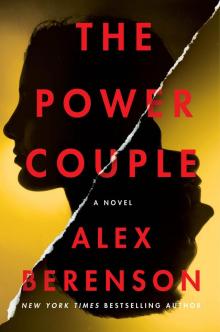 The Power Couple
The Power Couple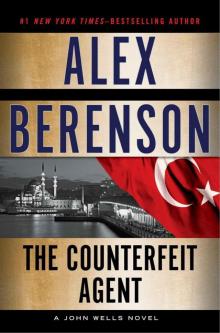 The Counterfeit Agent
The Counterfeit Agent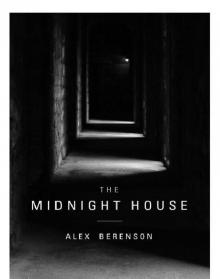 The Midnight House
The Midnight House The Prisoner
The Prisoner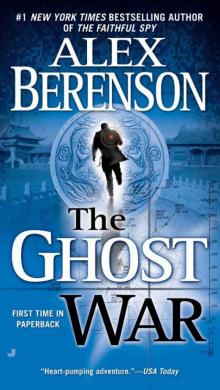 The Ghost War
The Ghost War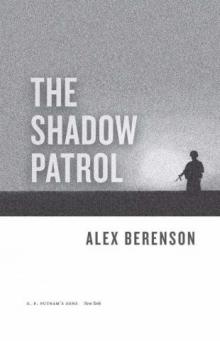 The Shadow Patrol jw-6
The Shadow Patrol jw-6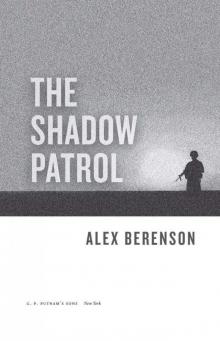 The Shadow Patrol
The Shadow Patrol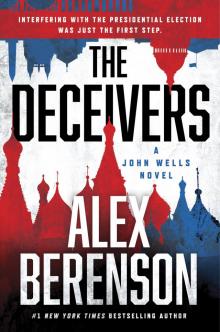 The Deceivers
The Deceivers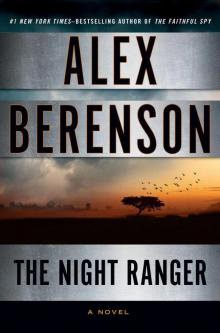 The Night Ranger jw-7
The Night Ranger jw-7 The Faithful Spy
The Faithful Spy The Prince of Beers (Kindle Single)
The Prince of Beers (Kindle Single)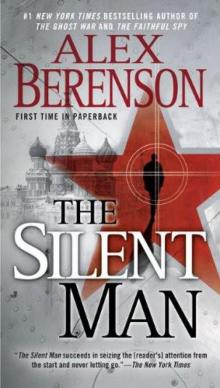 The Silent Man jw-3
The Silent Man jw-3 The Silent Man
The Silent Man The Wolves
The Wolves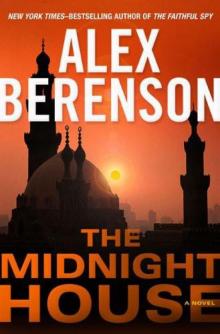 The Midnight House jw-4
The Midnight House jw-4 The Ghost Agent
The Ghost Agent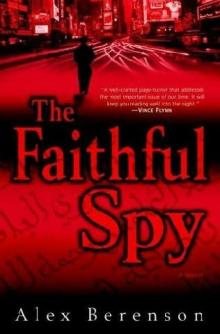 The Faithful Spy jw-1
The Faithful Spy jw-1 The Prince of Beers
The Prince of Beers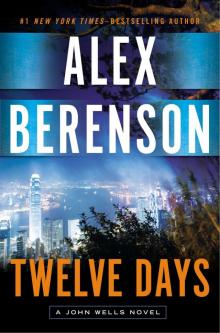 Twelve Days
Twelve Days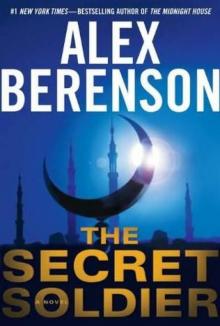 The Secret Soldier jw-5
The Secret Soldier jw-5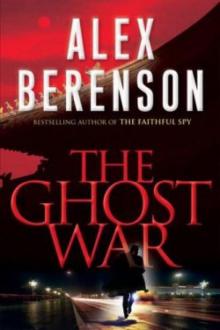 The Ghost War jw-2
The Ghost War jw-2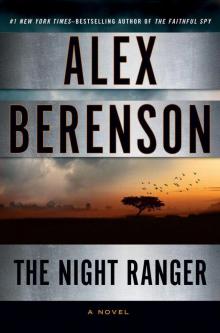 The Night Ranger
The Night Ranger